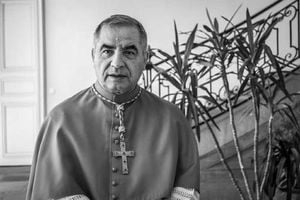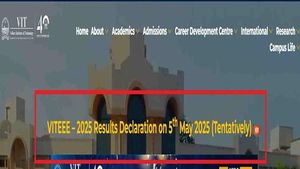Climate activist Zain Haq, 24, has been formally deported from Canada to his home country of Pakistan, amid serious discussions about the ramifications of his environmental activism and the treatment of immigrants involved in such causes.
The young activist, known for his role with the group Save Old Growth, expressed his emotional turmoil shortly before his departure. “I would not be myself without Zain. I feel like I am losing half of me,” shared Sophia Papp, Haq’s wife, as she prepared for being separated from her husband.
Haq’s deportation stems from complications with his immigration status. Originally coming to Canada on a student visa to study at Simon Fraser University, he became significantly involved with climate issues, blocking roadways as part of protests against environmental degradation. These actions led to arrests and several mischief charges being laid against him.
His legal troubles, along with the expiry of his temporary residency permit, culminated in the Canada Border Services Agency issuing his deportation order. "Zain is not a serious criminal. The sentencing judge said he would make an impact," remarked Haq’s lawyer, Randall Cohn, underlining the harshness of the deportation order and its impact on Haq's activism.
His attempts to remedy the situation included applying for spousal sponsorship, which was denied, and appealing the deportation, which was also unsuccessful. This delay led to confusion, with reports indicating the Immigration, Refugees, and Citizenship Canada (IRCC) lost his application for temporary residency.
Green Party leader Elizabeth May expressed her concern over the bureaucratic oversight. “This is a thoughtless, careless bureaucratic error,” she stated, criticizing the deportation as politically motivated due to Haq's environmental activism.
Haq’s story has sparked significant debate within Canada, especially among political figures. B.C. Conservative leader John Rustad publicly dismissed Haq's activism as criminality, stating, “Don’t let the door hit you on your way out.” Rustad’s comments echo sentiments shared by some who oppose activism disrupting public order, labeling Haq's protests as lawbreaking.
On the day of his deportation, Haq reported to the Canada Border Services Agency with his wife and her family. After hours of anticipation at Toronto Pearson International Airport, he boarded his flight to Karachi. "I accept my fate," Haq said, trying to remain positive amid the emotional upheaval.
Meanwhile, Papp has vowed to travel to Pakistan to reunite with her husband again. “I feel really let down by my home in Canada,” she remarked, reflecting disappointment over how the situation was handled by Canadian authorities.
Haq himself indicated, “There was a lot of shady stuff...that were not very transparent,” speaking to the complicated bureaucracy of his deportation process. Despite the manifest challenges, Haq plans to file for spousal sponsorship based on humanitarian grounds, though he acknowledges this could take years.
This situation raises pressing questions about how nations treat activists striving for change. While Haq’s actions were intended to protect the environment, they led to accusations of visa violations, creating potential barriers to his residency status and resulting in his deportation.
Those supporting Haq are calling for comprehensive reforms to address the treatment of environmental activists within Canada’s immigration framework. “Canada made a mistake and deported a hero,” May concluded, summarizing the controversial nature of Haq’s activism and the state’s response to it.
Haq's future remains uncertain, but he and Papp are committed to their relationship and the fight for his return to Canada. The couple’s challenges speak to the broader conversations surrounding immigration, activism, and the delicate balance between national policies and individual rights.



